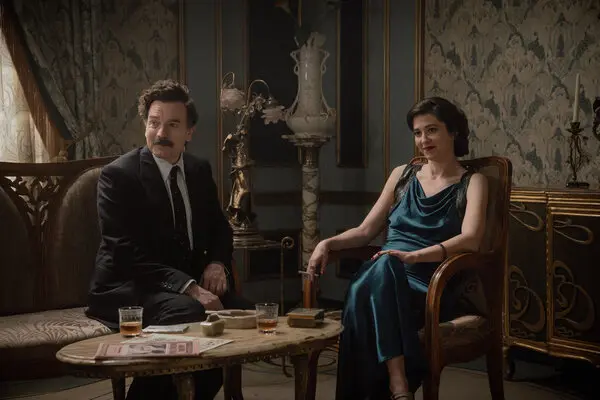I have always loved reading historical fiction books. Some of my favorites include The Nightingale by Kristin Hannah, All the Light We Cannot See by Anthony Doerr, I Must Betray You by Ruta Sepetys, A Thousand Splendid Suns by Khaled Hosseini, and The Book Thief by Markus Zusak. I would encourage anyone and everyone to read all of these. If you liked these, I would definitely encourage you to read my latest addition to this list: A Gentleman in Moscow by Amor Towles.

This book might appear intimidating because of its length and the difficulty of some of the names of the characters (it does take place in Russia), but please do not let that discourage you from reading such a wonderfully entertaining and engaging novel. I was never bored as I traversed through multiple decades in Moscow with the main character, Alexander Ilyich Rostov. The plot does not disappoint, and neither do Towles' complex, engrossing characters.

You might be thinking, "That sounds all well and good, but what is this book even about?" The story takes place within an international hotel in the center of Russia's capital. It begins in 1922, at the start of the Bolsheviks' reign and the rise of the Soviet Union. The main character, Count Alexander Ilyich Rostov, is a "former person", which is what the Russian government labelled those loyal to the former regime, which was the Russian monarchy that existed before the Russian Revolution. As a member of the aristocracy, Alexander was labeled loyal to the monarchy. During this time of political turmoil, many "former persons" were executed by the Bolsheviks. Our protagonist was spared this fate because of a poem accredited to him that was published during the beginning of the Russian Revolution. The poem spoke out against the injustice of the class divide within Russia and encouraged the working class to stand up against the Russian Monarchy. Because of this, the Count was given a less gruesome sentence, but a sentence nonetheless. He was placed under House arrest within the Metropol Hotel for the rest of his life. Throughout the rest of the story, the setting remains the same. Alexander cannot step foot outside of the hotel's four walls. This makes the story even more interesting, as the novel navigates the political landscape of Russia and the greater Soviet Union through all the hotel employees, diplomats, government officials, and run of the mill, or not so run of the mill, guests that travel through an international hotel in the heart of Russia.

While the historical context and politics of this time play a very important role in the story- and in my opinion add depth that makes all of the other elements of the story even more interesting and entertaining- they are not the central topic throughout the entire book. The story follows Alexander through his life after his house arrest. Suffice it to say that he lived a very interesting life. He is charming, funny, well educated, and generally likable as a character. As an aristocrat, he lived his life in great comfort. Moving into a small, old bedroom in the attic of a hotel was a challenging adjustment for him. He had to come to terms with a completely new reality. Throughout the story, you see him struggling to rationalize his steadfast patriotism and overall love for his country with his contrasting views about the "New Russia." He struggled in his personal relationships, political views, and with an overall lack of direction in his new life. As you know, though, trials usually lead to satisfying character development. Alexander's journey of finding purpose, friends, romance, and ultimately a greater fulfillment than he had ever known before over the course of 32 years within the Metropol Hotel makes for an amazing read.
I think that what really stands out about this book to me is the combination of several amazing elements that culminate in one complex, amazing story. First, all of the characters- even the antagonists- are written with unique personalities that engage the reader. The author uses people who were at one time merely hotel staff to the Count as some of the most important tools in developing his character into the better man he becomes by the end of the book. These relationships are so unique from each other in the story, and so well written, that all of the smaller interactions that might not even end up playing that big of a role in the greater plot still grab your attention. By the end of the book I felt attached to even some of the most minor characters. I even felt my own animosity towards the antagonists. Romantic relationships also worked to make the story that much more enjoyable. Second, the author utilized humor very well throughout the book to keep readers engaged with the story. The main character is sarcastic and quick, making many of his interactions genuinely funny. Third, the politics and historical context of the time in which this book takes place are woven beautifully into the plot. Despite the main storyline taking place only within one hotel, you become immersed into the reality of people living under the Soviet Union. Conversations with foreigners, political officials, reporters, and old friends who come to visit Alexander reveal this in a way that feels simply like an element of the story rather than informative of a period of history. All of these things come together to enrich the overall plot into one of my favorite books I have ever read.

In case you need more motivation to read it, the book has also now been adapted into a TV show, which is where most of the pictures in this post came from. If you are a fan of the books I mentioned at the beginning of this post, then I can almost guarantee that you will absolutely love this novel. Happy reading!






Comments